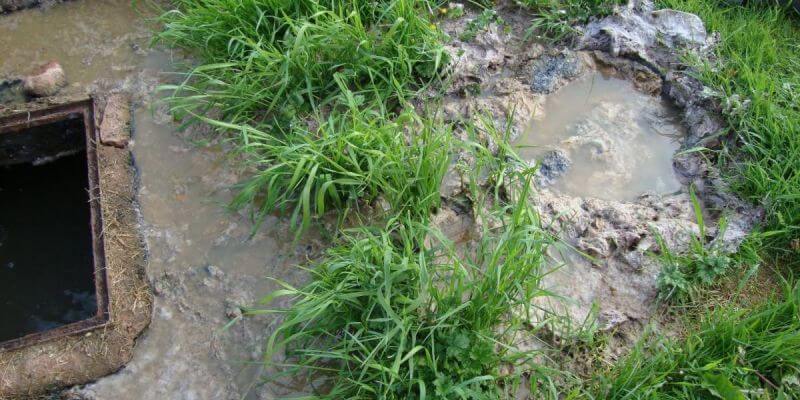If you have a septic tank, you cannot afford to employ the “if it ain’t broken, it doesn’t need fixing” approach to maintenance.
Instead, you need to proactively maintain your tank to ensure it runs efficiently at all times.
This calls for pumping your tank as often as the law in your local jurisdiction stipulates or as occasion demands.
But what if you neglect cleaning the tank for over two decades?
Well, here are a couple of things that could happen.
1. Scum Build-Up
Scum buildup is typically caused by a buildup of organic matter and other solids that are not effectively broken down by bacteria in the tank.
This is why the EPA recommends pumping your tank at least once every three to five years, or more frequently, depending on the size of the tank, the number of people in the household, and the amount of water you use in your house.
If you do not pump your tank for over 25 years, the tank will eventually fill up which may cause you unnecessary plumbing issues like the toilet not flushing properly or the septic tank leaking.
Also, cleaning a tank after such a long time will be harder and more hazardous.
2. Septic Tank Backup
Septic tank backup is when the wastewater in the tank starts flowing back into your home.
This can be caused by several reasons but not pumping your tank is the most common.
A backing-up septic tank is not only a nuisance in your home but also a health hazard.
The World Health Organization cautions that wastewater carries pathogens that can transmit waterborne diseases like dysentery, cholera, hepatitis A, polio, diarrhea, and typhoid.
So, pumping your tank not only keeps the septic system working efficiently but also keeps your family safe from disease.
3. Contamination of Groundwater
Septic systems are typically used in locations that have no access to municipal sewage treatment.
The waste produced by the septic system is treated and partially decomposed in the tank, and then released into the drain field where it is further treated by soil microorganisms.
However, if the septic system is too full (because of not pumping it regularly,) the wastewater will leave the tank prematurely before it is adequately broken down by bacteria.
Consequently, the waste will overflow into the surrounding soil and then into the groundwater thereby contaminating it.
Groundwater contamination from septic systems can have serious environmental and human health implications.
For starters, contaminated groundwater can spread harmful bacteria and viruses, posing a risk to human health.
In addition, contaminated groundwater can harm aquatic life and the ecosystem.
4. Septic System Failure
A septic tank that is not pumped regularly is a ticking time bomb – eventually, the system will fail.
A failed septic system will cause pollution to the environment and the government will require you to deal with it as soon as possible.
In most jurisdictions, you are not allowed to repair a failed system but are instead required to install a new system altogether which is quite an undertaking.
In addition to the costs involved, you may be charged with hefty fines.
Recommended Post: What Is An Illegal Septic System?
Do All Septic Tanks Need To Be Pumped?
Yes, all septic tanks need to be pumped.
Even though bacteria do a good job of breaking down waste, scum and sludge will still accumulate in the tank over time.
Scum is typically made of grease and it cannot be broken down by bacteria.
Instead, it floats on water to form the scum layer which keeps building up until it is pumped.
On the flip side, any inorganic matter (as well as some organic matter) that is not broken down by bacteria will sink to the bottom of the tank to form the sludge layer.
If you do not pump your tank, the scum and sludge layers will eventually overwhelm your tank.
When To Get Septic Pumped
On average, you should pump your tank every 3 years although it could be less or more depending on the following factors as suggested by the National Environmental Services Center at West Virginia University:
- The size of your family
- The amount of water you use
- How much solid waste is in the water (e.g. using garbage disposal increases solid waste).
The frequency will also be determined by your local laws. For instance, even if you have a large tank with few occupants, the law in your area may require you to pump your tank every 2 years.
So, it is best to check with the local government just to be sure of what applies to your unique situation.
Conclusion
Some people try to avoid pumping their tanks in the guise of saving money but in the grander scheme of things, they end up spending way more once the system fails.
That’s because the cost of installing a new septic tank is way more than what it would cost you to pump it now and then.
It is therefore in your best interest to stick to a regular septic tank pumping schedule.
